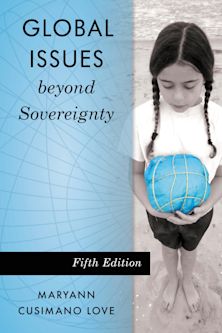Description
Focusing on the intersection between globalization and migration, this powerful text traces a dynamic, contradictory process that has set the world in motion and incorporated millions of migrants into an economic market whose dimensions are unprecedented in human history. Eliot Dickinson emphasizes recent developments in global politics, such as the massive number of refugees from wars in the Middle East who are now seeking asylum in Europe; the “Fortress Europe” mentality illustrated on the Italian island of Lampedusa; the heart-wrenching humanitarian challenge of Mexican and Central American children arriving alone in the United States; and the effects of climate change and environmental destruction on international migration. Today, with the collaboration of compliant governments and elites in the peripheral countries of the Global South, multinational corporations continue to flout regulations, destroy the environment, and take advantage of the large number of displaced, unemployed workers. While globalization is eliminating barriers between countries and making it easier for goods and capital to move around the world, the industrialized countries of the Global North are simultaneously putting up barriers to people and making it harder for them to migrate. This timely and provocative book explains how we have arrived at this paradoxical point in history and critically examines why governments are enacting policies that protect borders instead of people.
Table of Contents
List of Abbreviations
Acknowledgments
Chapter 1: The Onset of a Borderless World
Chapter 2: Historical-Structural Origins of Global Migration
Chapter 3: The Global South
Chapter 4: The Global North
Chapter 5: The Coming Transformation
Notes
Recommended Readings
Index
About the Author
Product details
| Published | 20 Jul 2016 |
|---|---|
| Format | Ebook (Epub & Mobi) |
| Edition | 1st |
| Extent | 196 |
| ISBN | 9781442254985 |
| Imprint | Rowman & Littlefield |
| Illustrations | 5 tables |
| Series | Globalization |
| Publisher | Bloomsbury Publishing |


































